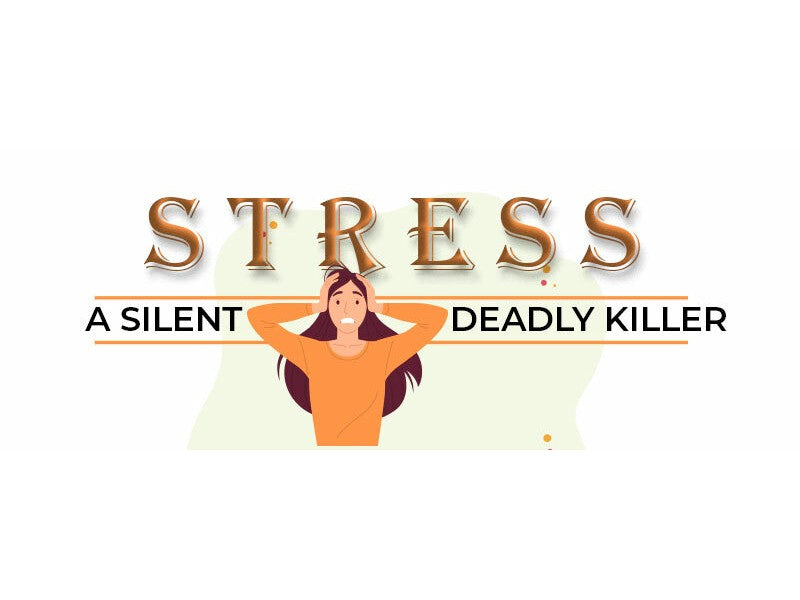
The words change and stress have become synonymous. While change is part and parcel of human life, the rate of change has become so fast and furious today that it creates a perpetual sense of uneasiness and stress in the hearts and minds of nearly everyone.
Chronic stress or long-term stress can have a serious impact on a person’s mental and physical health. Studies now indicate that between 70 and 80 percent of all disease is strongly related to, if not directly associated with, stress.

Stress has been linked to all the leading causes of death, including heart disease, cancer, lung ailments, accidents, cirrhosis, and suicide.
People suffering from intense or ongoing stress may develop cardio- vascular problems, such as heart attacks or the “hardening of the arteries” known as atherosclerosis—a risk factor for both heart attacks and stroke.
Chronic stress can take a toll on the immune system, making someone more susceptible to colds and infections; it can also ratchet up the immune response to detrimental levels, resulting in allergies, asthma, autoimmune conditions and even cancer.
The mind itself can be a casualty of stress if normal feelings of distress and demoralization tilt toward clinical depression or anxiety. There is even evidence that depression and traumatic stress can cause parts of the brain to atrophy.
Other stress-related illnesses include diabetes, colitis, chronic fatigue syndrome, fibromyalgia, eczema, and ulcers.
The reason is that when we are stressed, our body resorts to flight or fight response: the stress response, that has been built into our DNA since the beginning of human life.
It’s a powerful system, a dynamic resilience that sharpens our attention and mobilizes our bodies to cope with threatening situations, then returns to baseline, usually with no ill effects.

While it is not possible to remove or even reduce stress from our modern fast-paced life, our goal should be to manage stress efficiently. We can do this by adopting a holistic approach to stress management which takes care of our physical, mental, emotional and spiritual well-being.
A holistic stress management program is combination of relaxation techniques (meditation, yoga, aromatherapy, music therapy, art therapy, etc.,) and coping techniques (cognitive restructuring, time management, journaling, etc.,)
The Power of Fragrance
Scent is the most unique of all our senses, as it speaks directly to the emotional part of the brain, called the limbic system which controls our emotions and our memories.
When you inhale a fragrance, the scent molecules interact with the lining of the nose, and the neurons there generate a signal. The olfactory bulb situated above the two nasal cavities processes the signal and sends the information to the limbic system which consist of:

Interestingly, these four glands work together to create both a stress (fight or flight) response in our body as well work create a sense of stability and calm in our body (homeostasis).
Simply stated, when the “smell” of freshly cut grass or your favourite perfume reaches the limbic system of the brain, these four glands work together to release neurochemicals, that activate the immune system, lowering blood pressure, affect digestion, trigger memories, evoke emotions, and kick off a host of other physiological responses that will make you feel relaxed and less stressed instantly! That is the power of fragrance.






